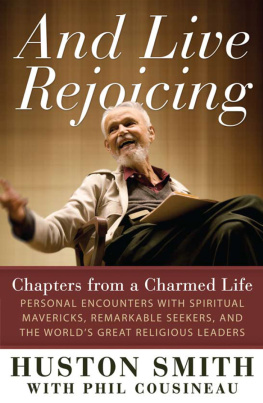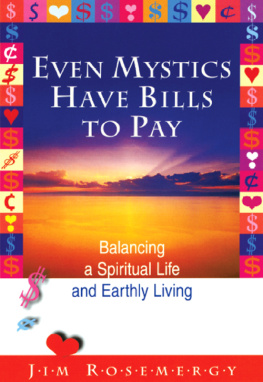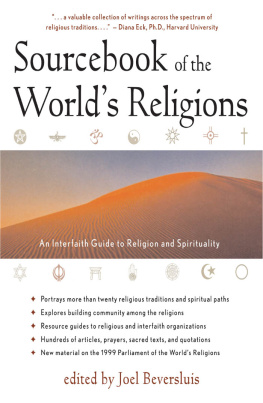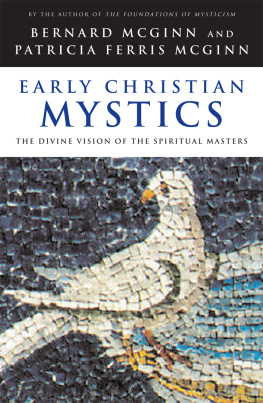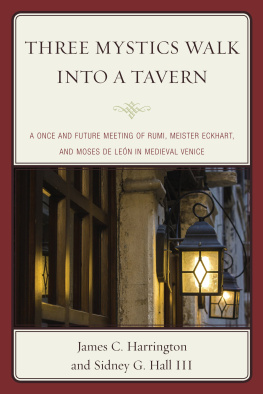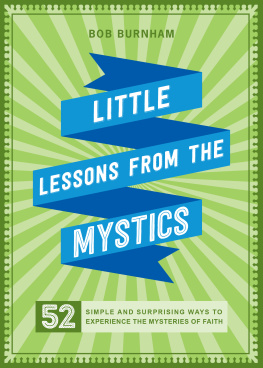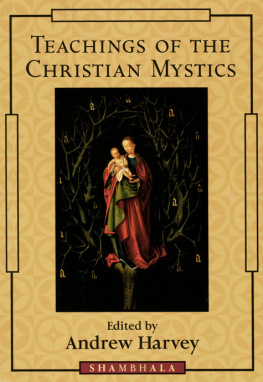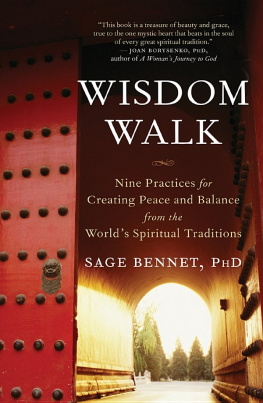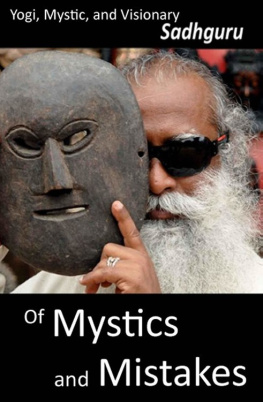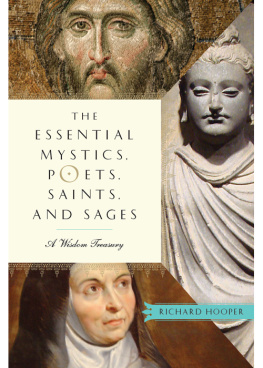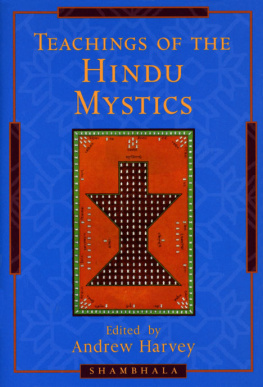1st eBook edition, 2019
Published by
Center for Sacred Sciences, Eugene, Oregon, USA
www.centerforsacredsciences.org
Founded in 1987, the Center for Sacred Sciences is a non-profit spiritual organization whose mission is as follows:
1. To demonstrate that, despite their outer (or exoteric) differences, the worlds great religious traditions share an inner (or esoteric) Truth testified to by their mystics.
2. To help develop a new worldview in which the Truth realized by the mystics and the truths of modern science can be seen as compatible ways of understanding the same underlying Reality.
3. To foster and maintain a community of spiritual practitioners who wish to follow the teachings and practices of the mystics of all the great traditions, presented in generic, contemporary terms.
Copyright 2009, 2019 by Joel Morwood
All rights reserved
For my wife, Jennifer, light of my life.
Preface
Know, O noble brother, that while the paths are many, the Way of Truth is single.
Ibn al-Arabi (Muslim)
During a particularly dark period in my life, when I despaired of ever finding happiness, I happened to stumble on some of the writings of the mysticsmen and women who claimed to have discovered a universal and liberating Truth about the ultimate nature of Reality. What I found so striking about their testimonies was that, unlike the works of other philosophers and theologians, whose ideas seemed always to conflict, accounts of this Reality among the mystics were remarkably similar. And this was true despite the fact that they had lived in very different times and places, and come from very different religious traditions. Listen, for example, to one of the authors of the Hindu Upanishads, some of which date back to the eighth-century BCE in India:
As rivers flowing towards the ocean find their final peace and their name and form disappear, even so the wise become free from name and form and enter into the radiance of the Supreme Spirit who is greater than all greatness In truth who knows God becomes God.
Now, compare this to how the sixteenth-century Spanish Christian mystic Teresa of Avila describes her union with God:
Here it is like rain falling from the heavens into a river or spring; there is nothing but water there and it is impossible to divide or separate the water belonging to the river from that which fell from the heavens. Or it is as if a tiny streamlet enters the sea, from which it will find no way of separating itself, or as if in a room there were two large windows through which the light streamed in: it enters in different places but it all becomes one.
Three hundred years later, the West African Sufi sage Cerno Bokar had this to say about seekers who attain what he calls the highest light of truth:
Those who have the good fortune to reach the degree of this light lose their identity and become like a drop of water which has fallen into the Niger [River], or into a sea of infinitely vast extent and depth.
And heres what the contemporary Tibetan master Dudjom Lingpa writes about the end of the Buddhist path:
It is like a drop of water blending with the ocean and becoming the ocean without altering it, or space within a vase blending with the space outside, extending freely throughout space without its being altered.
Another difference between the mystics and ordinary philosophers and theologians was that, instead of trying to convince the reader of the truth of their ideas through argument, the mystics insisted that anyone willing to undertake the appropriate spiritual disciplines and practices could discover it directly for themselves. Thus, among Sufis (the mystics of Islam), seekers who reach the end of the path are called al-muhaqqiqun , which means verifiers . This is because, as the thirteenth-century Sufi shaykh (master) Ibn al-Arabi declares,
Knowledge of mystical states can only be had by actual experience, nor can the reason of man define it, nor arrive at any cognizing of it by deduction.
So, too, the anonymous author of the two fourteenth-century Christian classics The Cloud of Unknowing and The Book of Privy Counseling writes,
You will not really understand all this until your own contemplative experience confirms it.
And heres how the seventh-century Hindu sage Shankara sums up this insistence on empirical confirmation:
From the lips of your teacher you have learned of the truth of Brahman as it is revealed in the scriptures. Now you must realize that truth directly and immediately. Then only will your heart be free from any doubt.
In this respect, mysticism is not unlike a science. In science, theories can be verified by observations gained through various kinds of experiments. So, too, the teachings of the mystics can be verified by insights and experiences gained through various kinds of practiceswhich is precisely what I myself did.
Slowly but surely I began to engage in practices of meditation, keeping precepts, cultivating love and compassion, and conducting self-inquiry. At first, I thought of all this more as a hobbysomething to do in my spare time. But, eventually, walking a spiritual path became the priority of my life. I abandoned my career, friends, and family in search of the Truth to which all the mystics seemed to point. And yet, no matter how hard I tried or how far I traveled, that Holy Grail continued to elude me. Finally, after I had given up all hope of attaining my goal, it happened. In a cheap motel room on the night of August 13, 1983, I Awoke to a Reality at once far more astonishing and, at the same time, far more simple than anything I could have ever imagined. Here is part of what I wrote shortly thereafter:
I jump up, turn on the light, and look around. Sure enough, I no longer see through a glass darkly. The veil has been lifted and the glass has clearedno, more than clearedit has vanished! I see the Kingdom, and now I am laughing wildly, because the great joke of it all is that this exalted Kingdom I have been searching for in such anguish and despair is none other than the very room I have been sleeping in, with its dirty, cinder block walls, frayed curtains, and horribly grungy, blue-green rug! I could have shouted! I could have danced! I could have done anything for that matter, because it really didnt matter. It didnt even exist and never had. I was free.
In the years that followed a number of students sought my help with their own spiritual quests. In 1987 we established the Center for Sacred Sciencesa small organization dedicated to studying mystical teachings and engaging in mystical practices. This book is an outgrowth of that work. In it you will hear the voices of many mystics from very different traditions, but it is not meant to be an argument for the validity of their claims. Rather, it is meant to be a manual of instruction, a step-by-step guide for anyone who wishes to walk this path and find out for themselves whether what the mystics say is true. To this end I have tried to distill out the most universal principles and the most essential practices taught by mystics of all the great traditions. I have also tried to restate them in more generic terms, suitable for modern seekers, whether they belong to an established tradition or not.


